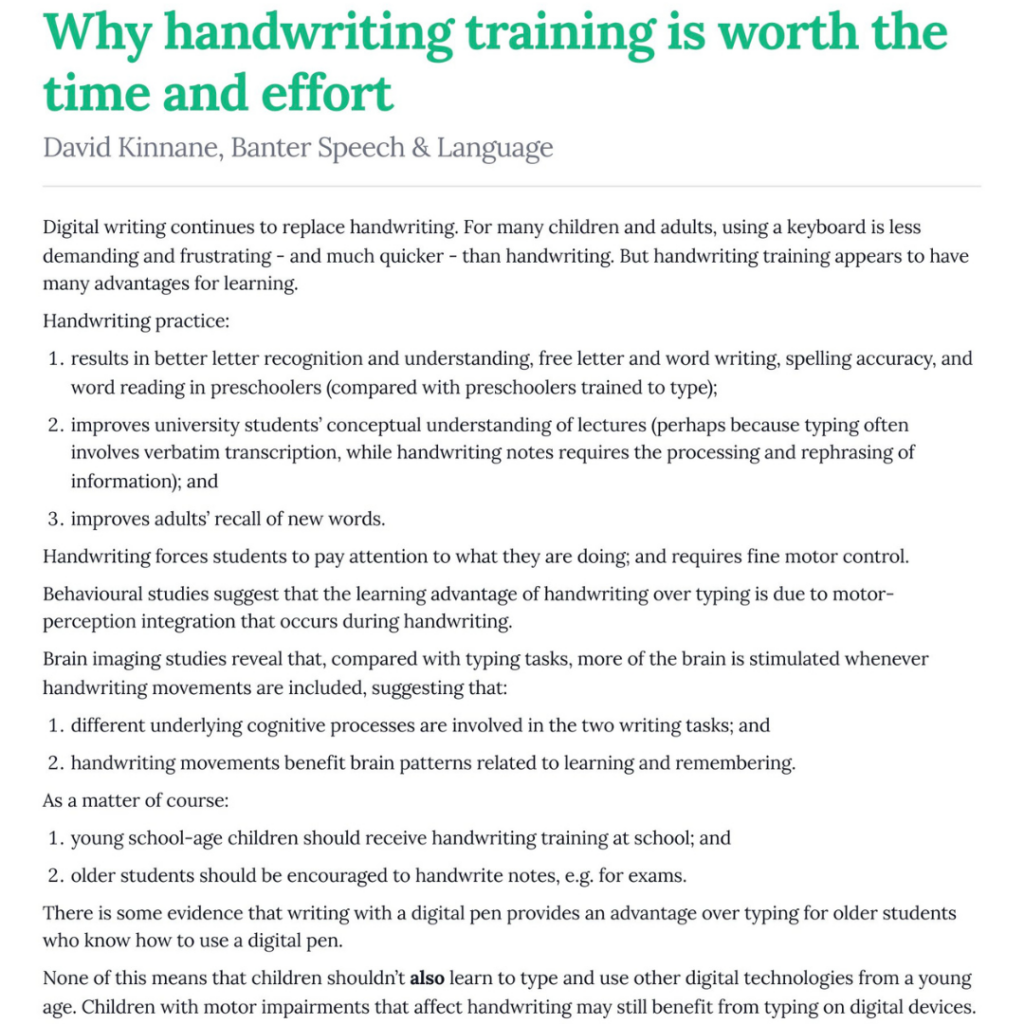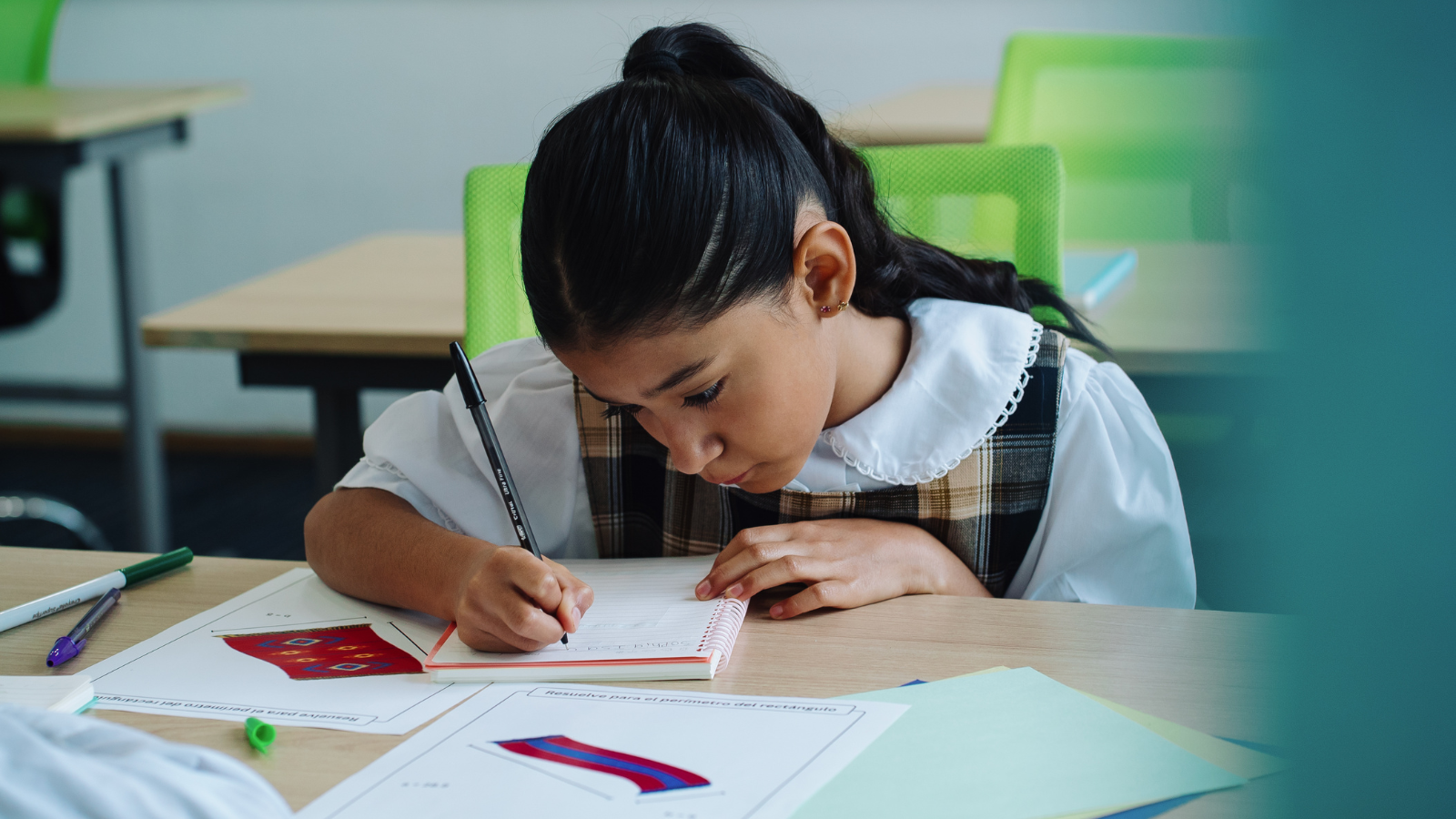Why handwriting training is worth the time & effort
Digital writing continues to replace handwriting. For many children and adults, using a keyboard is less demanding and frustrating – and much quicker – than handwriting. But handwriting training appears to have many advantages for learning.
Handwriting practice:
- results in better letter recognition and understanding, free letter and word writing, spelling accuracy, and word reading in preschoolers (compared with preschoolers trained to type);
- improves university students’ conceptual understanding of lectures (perhaps because typing often involves verbatim transcription, while handwriting notes requires the processing and rephrasing of information); and
- improves adults’ recall of new words.
Handwriting forces students to pay attention to what they are doing; and requires fine motor control.
Behavioural studies suggest that the learning advantage of handwriting over typing is due to motor-perception integration that occurs during handwriting.
Brain imaging studies reveal that, compared with typing tasks, more of the brain is stimulated whenever handwriting movements are included, suggesting that:
- different underlying cognitive processes are involved in the two writing tasks; and
- handwriting movements benefit brain patterns related to learning and remembering.
As a matter of course:
- young school-age children should receive handwriting training at school; and
- older students should be encouraged to handwrite notes, e.g. for exams.
There is some evidence that writing with a digital pen provides an advantage over typing for older students who know how to use a digital pen.
None of this means that children shouldn’t also learn to type and use other digital technologies from a young age. Children with motor impairments that affect handwriting may still benefit from typing on digital devices.

Principal source:
Van der Wheel, F.R. (Ruud) & Van der Meer, A.L.H. (2024). Handwriting but not typewriting leads to widespread brain connectivity: a high-density EEG study with implications for the classroom. Frontiers in Psychology, via Frontiers
Related reading:
Learning to handwrite fluently gives your child a big advantage
Apologies to Mrs Dixon: taking notes by hand is more effective than by laptop
This article also appears in a recent issue of Banter Booster, our weekly round up of the best speech pathology ideas and practice tips for busy speech pathologists, speech pathology students and others.
Sign up to receive Banter Booster in your inbox each week:

Hi there, I’m David Kinnane.
Principal Speech Pathologist, Banter Speech & Language
Our talented team of certified practising speech pathologists provide unhurried, personalised and evidence-based speech pathology care to children and adults in the Inner West of Sydney and beyond, both in our clinic and via telehealth.








